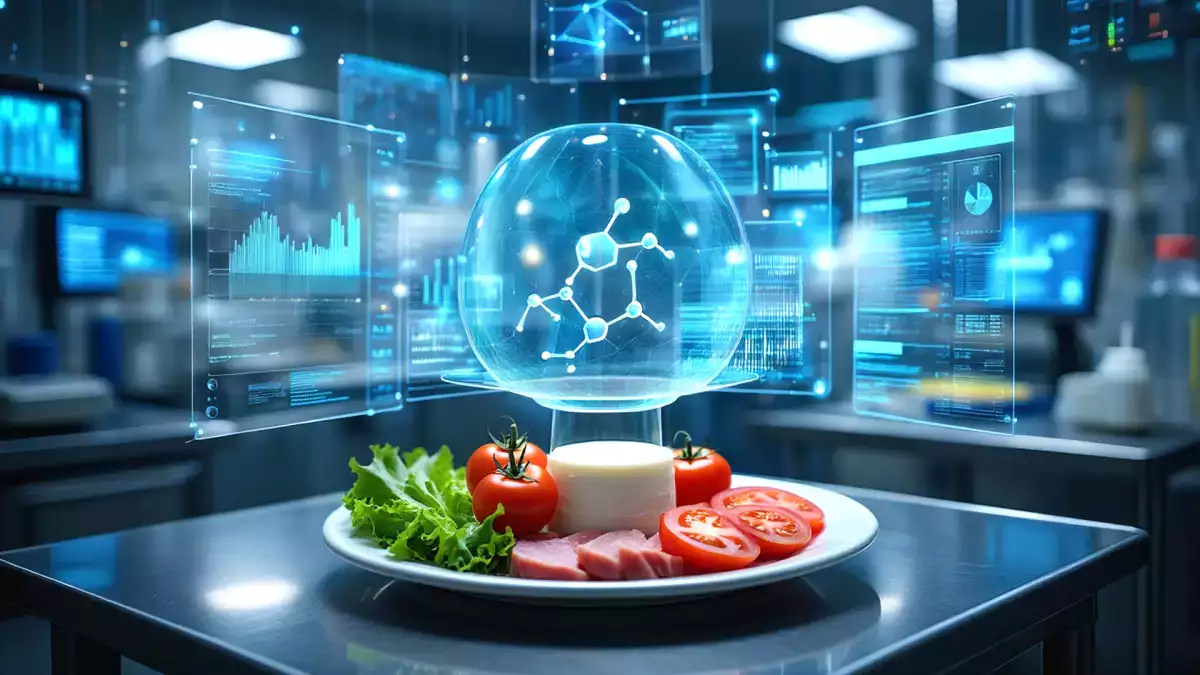AI isn’t just about robots and chatbots, it might quietly be saving the global food chain from collapse

Food safety is one of the most crucial challenges globally today. Between bacterial contamination, fraud along the supply chain and increasingly complex production systems, ensuring healthy and safe food has never been more urgent. Recent food emergencies have shown how a flaw in controls can have huge consequences, both for consumers' health and companies' reputations.
And that's where Artificial Intelligence (AI), a technology that can analyze huge amounts of data, recognize patterns and anomalies, predict risks and enhance controls at every stage of production, comes in. It's not just about automation; AI is proving to be a true innovation ally, capable of revolutionizing the way we deal with contamination and protect the health of millions of people.
AI as a "digital sentinel" against contamination
Traditionally, food controls have been based on sampling, laboratory analysis and periodic inspections. Indispensable tools, but with limitations: they are expensive, time-consuming and, most importantly, they cannot always prevent a risk in advance.
AI, on the other hand, functions as a digital sentinel that constantly watches over the entire production chain. Through advanced algorithms, it can:
- Monitor every stage of production, from raw material to finished product, in real time.
- Detect anomalies in temperature, humidity or storage data that could promote the proliferation of bacteria such as Salmonella or Listeria.
- Predict risk scenarios, indicating in advance where and when contamination might occur.
In other words, AI does not replace traditional controls, but complements them, making them faster, more accurate and, above all, preventive.
Transparent supply chain: when AI and blockchain work together
One of the most sensitive aspects of food safety is traceability. In a globalized market, a single ingredient can travel between continents before reaching our tables. Without advanced tools, it becomes nearly impossible to reconstruct a food's complete journey.
That is why many companies are turning to the combination of AI and blockchain:
- Blockchain provides transparency and immutability of data along the supply chain. Every step is recorded and verifiable.
- AI processes this data, automatically flagging any irregularities, delays or suboptimal transport conditions.
The result is twofold: increased safety and consumer confidence, who can know precisely the provenance and quality of what they bring to the table.
AI in laboratories: faster and more effective diagnoses
Many cases of contamination are discovered in laboratories, but traditional methods can take days to get a result. In this, AI is revolutionizing microbiological analysis.
Thanks to machine learning and image recognition, it is now possible:
- Identify dangerous microorganisms in hours instead of days.
- Analyze microscopic images and genetic sequences with extremely high accuracy.
- Create predictive models that anticipate how and where bacteria will spread under certain environmental conditions.
This speed is not just a technical advantage-it can mean the difference between a circumscribed food recall and a true public health emergency.
The concrete benefits for consumers and businesses
The use of Artificial Intelligence in food safety is not just a technological trend, but a strategic choice that brings concrete benefits:
- Prevention: identifying risks before they become emergencies.
- Efficiency: reducing time and costs through automated and predictive controls.
- Trust: offer consumers transparency and guarantees never seen before.
- Sustainability: limiting food waste through smarter resource management.
For companies, this means not only complying with regulations, but also differentiating themselves in the market with an image of seriousness and responsibility.
Challenges to be faced
Despite progress, the adoption of AI in the food sector also brings with it some challenges:
- High initial investment, which not all companies are ready to tackle.
- Technical skills needed to manage AI systems and interpret them correctly.
- Ethical and legal aspects, such as handling sensitive data and liability in case of errors.
Overcoming these barriers will be critical to allowing these technologies to spread widely.
Conclusion: a more secure and transparent future
Food safety is not just a regulatory obligation, but a consumer right and a responsibility for companies. Artificial Intelligence represents a real revolution, bringing more speed, more precision and more prevention to an industry that cannot afford mistakes.
In an increasingly complex supply chain, relying on advanced technologies is not a luxury, but a necessity. Thanks to AI-capable of seeing what escapes the human eye-the future of food will not only be safer, but also more transparent and sustainable. A future in which health, trust and innovation will walk hand in hand.
Sources:
The role of artificial intelligence in advancing food safety - Science Direct
Integrating AI with detection methods, IoT, and blockchain to achieve food traceability - Science Direct
Artificial intelligence, big data, and blockchain in food safety - De Gruiter Bill
 Daniele Mainieri
Daniele Mainieri
Comments